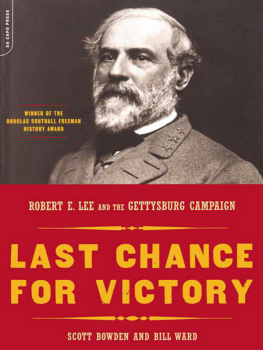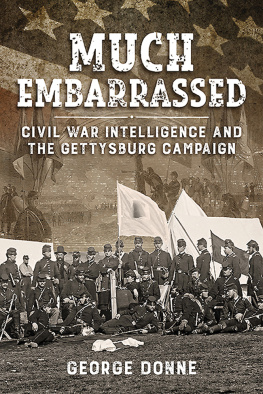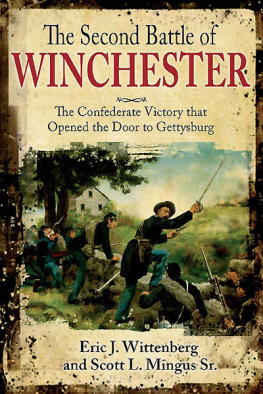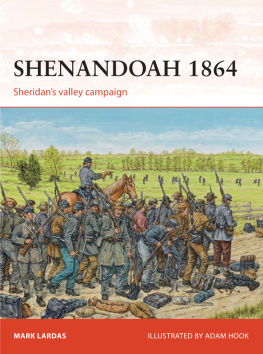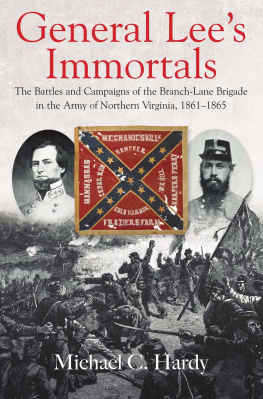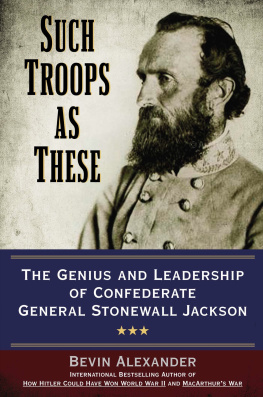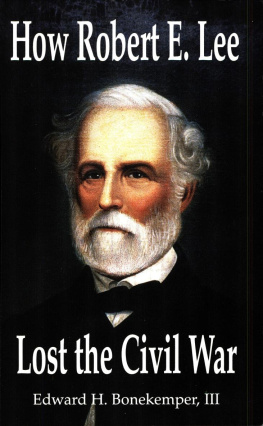Paul D. Casdorph - Confederate General R.S. Ewell: Robert E. Lees Hesitant Commander
Here you can read online Paul D. Casdorph - Confederate General R.S. Ewell: Robert E. Lees Hesitant Commander full text of the book (entire story) in english for free. Download pdf and epub, get meaning, cover and reviews about this ebook. year: 2021, publisher: University Press of Kentucky, genre: Non-fiction. Description of the work, (preface) as well as reviews are available. Best literature library LitArk.com created for fans of good reading and offers a wide selection of genres:
Romance novel
Science fiction
Adventure
Detective
Science
History
Home and family
Prose
Art
Politics
Computer
Non-fiction
Religion
Business
Children
Humor
Choose a favorite category and find really read worthwhile books. Enjoy immersion in the world of imagination, feel the emotions of the characters or learn something new for yourself, make an fascinating discovery.

- Book:Confederate General R.S. Ewell: Robert E. Lees Hesitant Commander
- Author:
- Publisher:University Press of Kentucky
- Genre:
- Year:2021
- Rating:4 / 5
- Favourites:Add to favourites
- Your mark:
Confederate General R.S. Ewell: Robert E. Lees Hesitant Commander: summary, description and annotation
We offer to read an annotation, description, summary or preface (depends on what the author of the book "Confederate General R.S. Ewell: Robert E. Lees Hesitant Commander" wrote himself). If you haven't found the necessary information about the book — write in the comments, we will try to find it.
Richard Stoddert Ewell is best known as the Confederate General selected by Robert E. Lee to replace Stonewall Jackson as chief of the Second Corps in the Army of Northern Virginia. Ewell is also remembered as the general who failed to drive Federal troops from the high ground of Cemetery Hill and Culps Hill during the Battle of Gettysburg. Many historians believe that Ewells inaction cost the Confederates a victory in this seminal battle and, ultimately, cost the Civil War.
During his long military career, Ewell was never an aggressive warrior. He graduated from West Point and served in the Indian wars in Oklahoma, Kansas, New Mexico, and Arizona. In 1861 he resigned his commission in the U.S. Army and rushed to the Confederate standard. Ewell saw action at First Manassas and took up divisional command under Jackson in the Shenandoah Valley Campaign and in the Seven Days Battles around Richmond.
A crippling wound and a leg amputation soon compounded the persistent manic-depressive disorder that had hindered his ability to make difficult decisions on the battlefield. When Lee reorganized the Army of Northern Virginia in May of 1863, Ewell was promoted to lieutenant general. At the same time he married a widowed first cousin who came to dominate his lifeoften to the disgust of his subordinate officersand he became heavily influenced by the wave of religious fervor that was then sweeping through the Confederate Army.
In Confederate General R.S. Ewell, Paul D. Casdorph offers a fresh portrait of a majorbut deeply flawedfigure in the Confederate war effort, examining the pattern of hesitancy and indecisiveness that characterized Ewells entire military career. This definitive biography probes the crucial question of why Lee selected such an obviously inconsistent and unreliable commander to lead one-third of his army on the eve of the Gettysburg Campaign.
Casdorph describes Ewells intriguing life and career with penetrating insights into his loyalty to the Confederate cause and the Virginia ties that kept him in Lees favor for much of the war. Complete with riveting descriptions of key battles, Ewells biography is essential reading for Civil War historians.
Paul D. Casdorph: author's other books
Who wrote Confederate General R.S. Ewell: Robert E. Lees Hesitant Commander? Find out the surname, the name of the author of the book and a list of all author's works by series.

